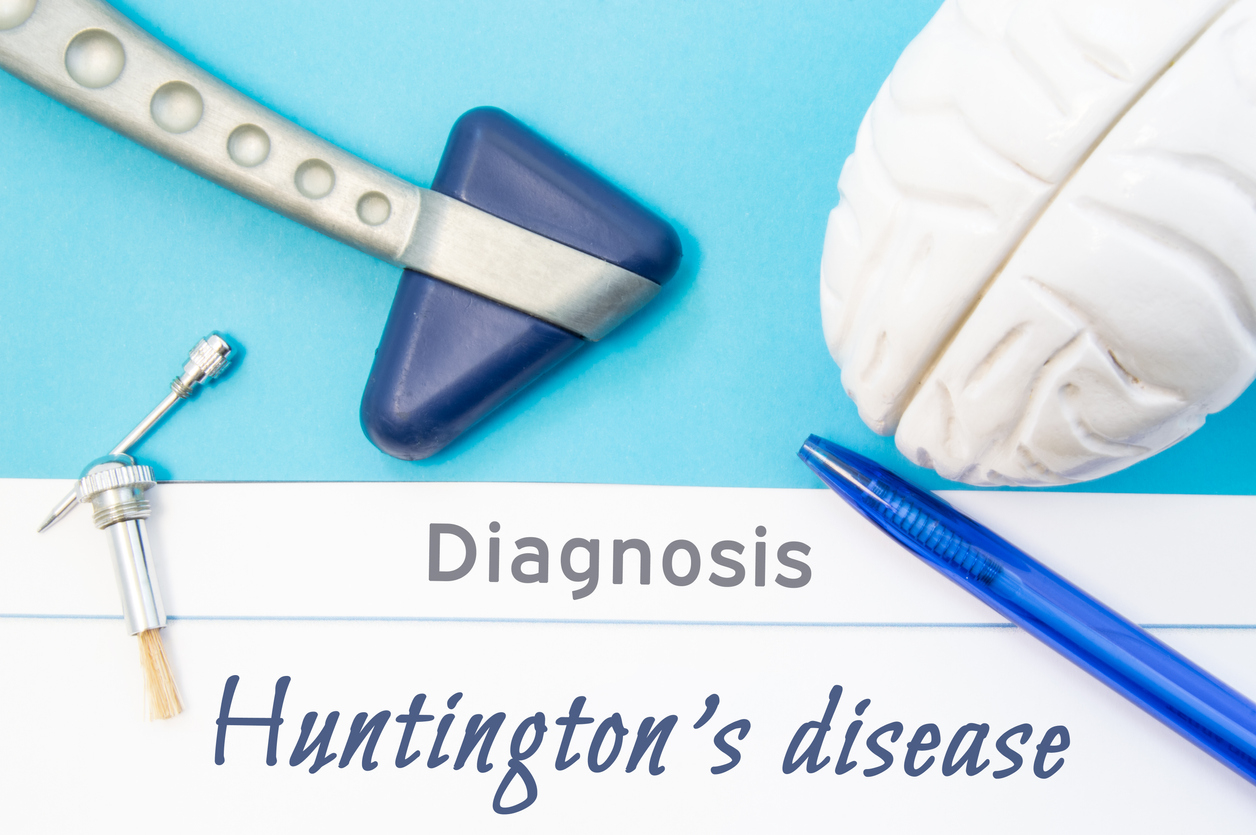Commitment + Clinical Leadership = Better Outcomes

Huntington’s Disease: Causes and Symptoms
Huntington’s disease is a rare brain disease that affects approximately 30,000 Americans. Anyone can develop Huntington’s disease, but if you have a parent with the disease, you have a 50% chance of developing it.1
Here are some facts about Huntington’s disease and what causes it, as well as symptoms and treatment options.
What is Huntington’s Disease?
Huntington’s disease is a rare brain disease that is genetic and passed down in families.2 This disease is named after George Huntington, M.D., the physician who first described what this disease was in the late 1800s.3
Huntington’s disease is a progressive brain disorder that affects individuals in numerous ways both emotionally and physically. Symptoms typically begin to appear between 30 and 50 years old, and most patients diagnosed with Huntington’s live about 15-20 years after the symptoms begin.4
What Causes Huntington’s Disease?
Huntington’s disease is caused by a mistake in the DNA instructions, which are made up of thousands of genes.2
In individuals with Huntington’s disease, one gene will have a small error that’s called huntingtin. This defect is dominant, which means anyone who has a parent with Huntington’s disease has the gene and will eventually develop the disease.3
Over time, this small error will cause damage to the brain. Although Huntington’s disease affects the whole brain, some areas are more vulnerable. The striatum, which controls movement, mood, and behavior, is typically affected the most.
Symptoms of Huntington’s Disease
Signs of Huntington’s disease can appear at any age, but it’s more likely between the ages of 30 and 50.
The most common symptoms include:
- Mood and personality changes
- Depression
- Trouble with memory or thinking
- Loss of coordination
- Difficulty talking or swallowing5
Once the disease progresses, symptoms can worsen. Individuals who are diagnosed with Huntington’s disease eventually experience more severe symptoms.
- Weight loss
- Difficulty eating and risk of choking due to muscles in the mouth and diaphragm losing function
- Jerking in the face and head
- Fidgety movements
- Stumbling
Emotional Symptoms
Huntington’s disease will affect an individual’s emotional and psychological state. About 40% of those diagnosed will also develop conditions such as obsessive-compulsive disorder (OCD), mania, or delusional disorders.5
Here are some other ways that Huntington’s will negatively impact an individual’s emotions:
- Aggression
- Anger
- Depression
- Moodiness
- Lack of emotion
- Disorientation
- Antisocial behavior
Treatment for Huntington’s Disease
In order to be diagnosed with Huntington’s disease, a doctor will review their patient’s medical and family history. If someone has a parent or family member with the disease, they’re more at risk for developing it.
Doctors will also run tests such as blood tests and imaging tests. A CT scan can determine brain cell damage and loss of brain tissue. An MRI scan may also be used.6
Unfortunately, nothing can cure or stop the progression of Huntington’s disease. However, some treatments help to lessen the symptoms.
Here are some of the treatment options that doctors will discuss with patients depending on the progression of the disease, as well as other health factors.7
- Medication. There are different medications that doctors may prescribe their patients who have Huntington’s disease. Some medicines work to control movement, such as the involuntary jerking of certain parts of the body. There are also other medications that involve stabilizing mood, as well as antipsychotic and antidepressant medications.
- Psychotherapy. A psychologist, psychiatrist, or social worker can help patients who experience behavioral problems.
- Occupational therapy. Occupational therapists can assist their patient and their family with assistive devices that might be necessary when the disease progresses. For example, a patient may need help eating or drinking, and will need to learn these tasks with their assistive device.
- Physical therapy. A physical therapist can help someone with Huntington’s disease by enhancing their strength, balance, and coordination. This form of therapy can be helpful when a patient is experiencing mobility issues due to the disease.
- Speech therapy. Speech therapists can be extremely helpful when patients with Huntington’s disease begin having difficulty talking and swallowing.
How to Help Those With Huntington’s Disease
If you know someone or have a loved one who suffers from Huntington’s disease, there are many ways you can help.
Huntington’s Disease Society of America offers many different options to raise money and volunteer for this disease.8 Some options include:
- Donating money
- Workplace giving
- Family funds
- HDSA Marathon in New York City
- Advocacy
- Events in different cities
To learn more about what you can do and events near you, visit Huntington’s Disease Society of America’s website.
Learn More Today
Take the time to learn more about Huntington’s disease today and spread awareness. Spreading awareness of the disease and its symptoms is the first essential step in helping this cause.
Saber Healthcare is an organization dedicated to providing consultant services to long-term care providers. This article is for informational purposes and is not meant to be seen as professional advice. Please consult with a medical expert before relying on the information provided.
Sources
- https://my.clevelandclinic.org/health/diseases/14369-huntingtons-disease.
- https://hdsa.org/what-is-hd/overview-of-huntingtons-disease/.
- https://www.alz.org/alzheimers-dementia/what-is-dementia/types-of-dementia/huntington-s-disease.
- https://medlineplus.gov/genetics/condition/huntington-disease/.
- https://www.medicalnewstoday.com/articles/159552.
- https://www.hopkinsmedicine.org/health/conditions-and-diseases/huntingtons-disease.
- https://www.mayoclinic.org/diseases-conditions/huntingtons-disease/diagnosis-treatment/drc-20356122#:~:text=No%20treatments%20can%20alter%20the,a%20certain%20amount%20of%20time.
- https://hdsa.org/get-involved/donation-opportunities/.
